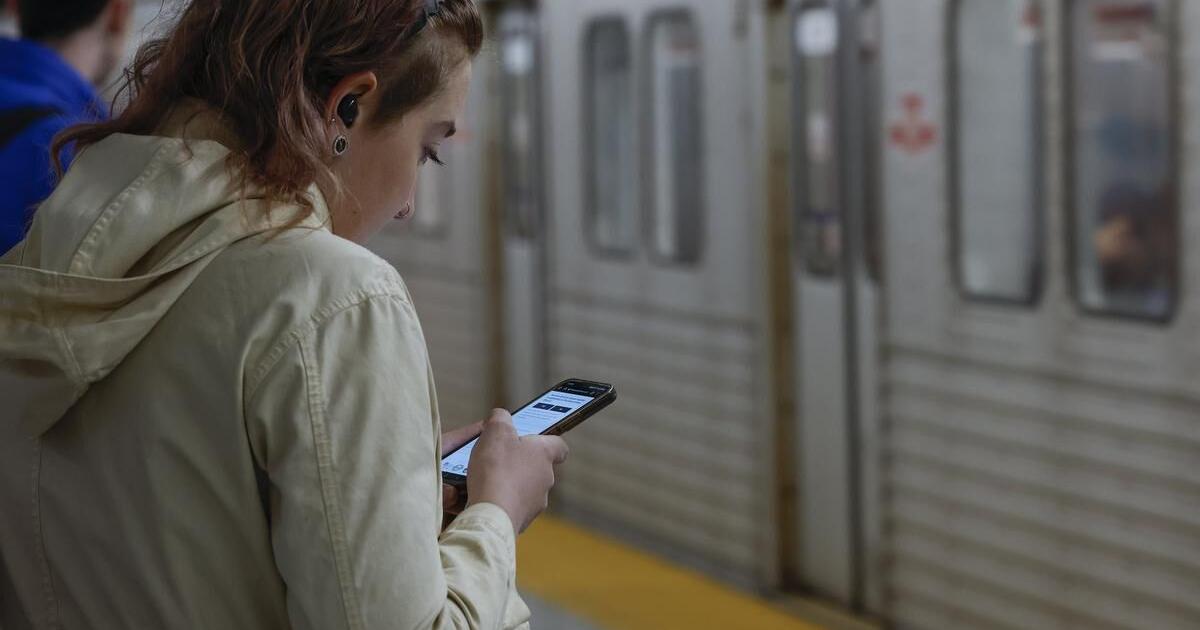Cell service for all is coming to the TTC subway system on Oct. 3.
Rogers — currently the sole provider of cell service on the TTC — must immediately allow other telecom companies access to all of the technical information they need to provide service, and come to commercial agreements within 100 days that will apply retroactively if needed, according to new telecom licence conditions announced Monday by Minister of Innovation, Science and Economic Development François-Philippe Champagne.
“Enough is enough,” Champagne said, standing alongside Mayor Olivia Chow and Toronto Liberal MPs. More than two million people on an average workday will no longer be in “perpetual airplane mode” — a state he described as unacceptable.
“This is a question of safety first and foremost,” he said.
Regardless of whether agreements are reached by Oct. 3, that is when cell service must be provided to all users wherever it is available on the subway system, which is some stations and the “downtown U” portion of Line 1 south of Bloor Street, according to a government official in a technical briefing Monday.
The federal minister also set deadlines mandating full subway station coverage by next June and 80 per cent of tunnel coverage by the end of 2025. Total system coverage is required by the end of 2026.
Chow said this news will bring a sigh of relief to all TTC riders.
“That sense of security is so important,” she said, praising the federal minister for his swift action.
The lack of cellphone service on the TTC has been called a serious security issue for years, but the major telecommunication companies refused to sign onto the network built by BAI Communications Inc., the company awarded the TTC contract by the city in 2012. That left only Freedom Mobile users with service in some of the subway tunnels.
In April, Rogers acquired BAI and took over the contract, sparking a heated battle with the other telecom companies over cell service access for their customers, with both sides blaming the other for lack of progress. (911 coverage is available to all regardless of carrier.)
In the meantime, Rogers customers were able to use their cellphones for the first time in the subway last month — a milestone celebrated with wall-to-wall ads from Rogers in Union Station.
But with no resolution reached despite a request from Champagne shortly after the Rogers deal, he has now amended the spectrum licences to force carriers to provide subway cell service to all as soon as possible, citing safety concerns, a government official said. Failure to comply could come with penalties including fines or licence suspension.
“They know me by now, I’m not the kind of guy you want to mess with,” Champagne said when asked what would happen if the companies fail to reach an agreement.
“The voice of Torontonians is much louder than any enforcement action,” he added.
Rogers has raised concerns that the current infrastructure will be unable to handle the volume of customers from all carriers.
“Based on what we’ve seen we are confident that customers from other carriers will be able to be on-boarded,” the government official said. “There may be a period of time, hopefully a short period of time, where the network would be, let’s say, suboptimal, where people would be getting mostly voice and text.”
Champagne said temporary reduced service is a small price to pay for basic connectivity for all in the public interest.
The official said the government was unable to intervene sooner because BAI Communications Inc. does not have a spectrum licence, they only provided the physical infrastructure.
“This approach reflects what we’ve been proposing all along — to bring 5G services to all riders as quickly as possible,” said Rogers spokesperson Sarah Schmidt. “Bell and Telus have been dragging their heels and the federal government is now forcing them to work with us in earnest to make connectivity possible for all riders. This is good news for Toronto transit riders. While we’ve been busy building, they’ve been busy whining.”



I don’t understand how the hardware in the network isn’t nationalized already. We pay for so much of it, and it’s an essential service these days. In Quebec the government is even spending something like up to $80,000 per house to connect rural residents to the internet because ISPs refused to — and then the ISPs get to enjoy that hardware. Why did they not just make a provincial ISP??
I assume because bell/Rogers sends lots of money to those that make the rules. It’s corruption all over.
corruption in Canada is rampant, that is why.